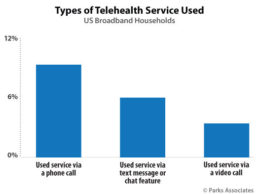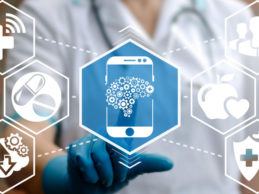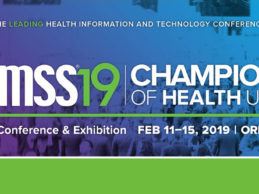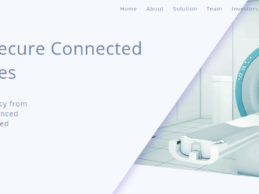It’s a fact. The more bandwidth-intensive connected medical devices and mobile devices our hospitals deploy, the more we are straining our health IT infrastructures. Something has to give. Many communications leaders see 5G technology’s real-time high bandwidth and lower latency access as powerful new technology features that are needed to expand healthcare applications’ capabilities and the functioning of medical devices, robotics, and mobile devices. Some say 5G will be transformative. Others
Read More
Connected Medical Devices
Only 15% of US Consumers Used A Telecare Service in Past 12 Months
As consumers integrate connected devices and services ever more deeply into their lifestyles, they bring the same expectation and desire to their health and wellbeing. New research from Parks Associates reveals 15% of US broadband households have used a telecare service in the past 12 months. The new report quantifies the adoption and use of consumer wearables and other connected fitness devices and evaluates consumer usage patterns and desire for new features.It also examines the growing
Read More
3 Challenges of Healthcare Internet of Things (IoT) Performance Testing
There’s no doubt that the internet of things (IoT) creates a new technological ecosystem in healthcare, helping organizations manage bottlenecks in care and bridging the gap between patients and providers. The list of applications for connected devices in hospitals keeps growing from real-time staff tracking across facilities to ensuring preventive equipment maintenance and 24/7 patient vitals monitoring in ER and resuscitation departments.But care delivery doesn’t stop after discharge. A range
Read More
Security Vulnerabilities Detected in ICDs: Addressing Ransomware Risk in Medical Devices
Medical device usage is on the rise, and that reality potentially puts people at risk if those gadgets have security flaws. It's crucial for device manufacturers, industry regulators and health practitioners to work together to ensure safety are paramount as adoption rises.Internal health devices are particularly at risk, especially since patients and providers may not immediately notice issues. The people who use or prescribe them assume they'll work as expected and typically don't have ways to
Read More
10 Major Barriers Hindering The Digitalization Of Chronic Conditions
Hundreds of millions of patients are affected by chronic diseases globally, often suffering from several of them. Despite such a huge opportunity, the coverage of chronic conditions with digital solutions is still below the acceptable level. Today, more than twenty common chronic conditions have its own specificity and are currently at its digital development stage, yet all of them face the same challenges in the digital health market, according to a recent Research2Guidance report.The report,
Read More
HIMSS19 Day 2 Announcements & Summary
Accenture: Millenials & Gen Z Are Shifting to Virtual, Retail, Clinic, Digital CareMillennial and Gen Z consumers in the U.S. are rapidly adopting non-traditional care models, such as retail clinics, virtual and digital services, according to results of an Accenture survey of 2,000 consumers.Key findings of the survey study include:- When considering traditional in-person care, millennials (ages 22 to 38 in 2019) were two to three times more likely than baby boomers (ages 55 to 73) to be
Read More
How Cloud Connectivity is Driving Medical Device Innovation in 2018 & Beyond
The healthcare industry is facing numerous global challenges in 2018, with ballooning costs, changing payment models and new legislation that routinely changes the relationship between patients, regulators, health care providers and health insurance carriers. With an aging global population and worldwide healthcare spending expected to grow from $7.1 trillion to $8.7 trillion by 2020, new technologies, products, and services in the healthcare space must demonstrate cost-effectiveness while
Read More
Protecting Medical Device Security in the Age of Ransomware
From medication pumps to pacemakers, people depend on lifesaving devices to live their healthiest possible lives and manage chronic ailments. Many of those patients likely hear about cybercriminals orchestrating massive data breaches, and might get concerned about one of those incidents compromising their information.However, they probably haven’t considered the hackers might target the devices in their bodies or the ones they otherwise use for better well-being.Hospitals Must Pay Attention to
Read More
5 Tips for Protecting Your IoT-enabled Medical Devices
Research shows us that security breaches can greatly impact a healthcare organization’s reputation. Unfortunately, healthcare leaders are stuck in the cross hairs of consumers and hackers. While consumers want transparency, access to information and assurance their personal information will remain safe, hackers are busy compromising patient information at a faster speed than ever before.As healthcare IT organizations strive to become more accessible and “open” to support patient engagement
Read More
Medigate Lands $5.35M to Help Secure Connected Medical Devices From Cyberattacks
Medigate, an Israli-based digital health startup has raised $5.35M in seed funding to expand its dedicated medical device security platform that protects all of the connected medical devices on healthcare provider networks. The seed round was led by YL Ventures, with additional funding from Blumberg Capital. The company will use the seed funding to continue to accelerate its development efforts of its medical device security platform. The Medigate Security Platform is currently in limited
Read More










